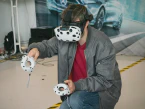Parenting''s Complex Journey

The Conflicting Messages of Parenting Books
Parenting is a complex and challenging experience that comes with a lot of responsibilities. Parents often turn to parenting books to guide them through the journey of raising their children, but these books can be misleading and confusing due to the conflicting messages they convey.
In the video script, the speaker talks about how parenting books promise to offer solutions to address the difficult decisions that parents face every day. However, these books often send conflicting messages that leave parents feeling uncertain and overwhelmed. For example, some parenting books advocate for tiger parenting, while others promote free-range parenting.
One consistent message that these books promote is the idea that if your child isn’t succeeding, you’re doing something wrong. This can lead to feelings of guilt and self-doubt among parents, who may feel responsible for their children’s failures.
However, the science of parenting and child development offers a different perspective on the role of parents in shaping their children’s outcomes. As the speaker explains, trying to predict how a child will turn out based on choices made by the parents is like trying to predict a hurricane from the flap of a butterfly’s wings. Parents may have an influence on their children, but they don’t have complete control over the outcomes.
The unpredictability of parenting outcomes is further illustrated by studies that show how children can be shaped by many forces that are often intertwined. For example, successful parents may have successful genes and successful peers, and grow up in a culture of success, which can make it hard to know which forces influence who children become.
In conclusion, while parenting books can be helpful, they can also be misleading and confusing due to the conflicting messages they convey. The science of parenting and child development offers a more nuanced understanding of the role of parents in shaping their children’s outcomes. Parents should focus on doing their best and hug the complexity and unpredictability of parenting outcomes.
The Influence of Genes on Child Development
Genes are an important factor in shaping who children become. While it’s true that parents have an influence on their children, they don’t have complete control. This is because genes play a significant role in determining a child’s characteristics, abilities, and personality.
The Importance of Understanding How Babies Develop
Understanding how babies develop is crucial for parents and caregivers. Scientists have made significant progress in this area, allowing for early intervention and treatment of genetic conditions that can lead to developmental delays.
The Complexities of How Parents Matter
While genes are a significant factor in child development, parents still matter. However, the ways in which parents influence their children are complex and unpredictable. Parents can shape their children in different ways, leading to diverse outcomes for each child in the same home.
It’s important to note that while parenting books offer conflicting messages, they still have some value. Parents can benefit from understanding the science of parenting and child development, which can help them make informed decisions and appreciate the moments they share with their children.
In conclusion, genes play a significant role in child development, but parenting still matters. Understanding how babies develop and the complexities of parenting outcomes can help parents better navigate the challenges of raising children. By focusing on what is most important and meaningful, parents can have a more realistic and satisfying experience of being a parent, and children can thrive in their unique paths.
Stop Blaming Yourself and Your Parents
As parents, we often put a lot of pressure on ourselves to do everything right and raise perfect children. We also tend to blame our own parents for the way we turned out or the difficulties we face. However, the science of parenting and child development tells a different story.
The Judgments and Pressures Parents Face
Parents face a lot of judgment from others, both from people they know and complete strangers. A recent survey found that 90% of mothers and 85% of fathers feel judged, with close to half feeling judged all or most of the time. These judgments are often based on conflicting messages from parenting books and societal norms that vary widely around the world and across time.
However, the science shows that parenting is complex and difficult to predict. Even when parents try their best, they cannot control every outcome or satisfy everyone. This is especially true for “dragon parents,” who face the devastating diagnosis of a child’s terminal illness.
The Power of Moments in Parenting
While parenting is unpredictable, moments of connection and love with our children can be incredibly powerful. It’s important to appreciate these moments for what they are and to focus on loving our children today, now, and in the moment.
As the activist Andrew Solomon noted, we can be endlessly sad at how different our children are from us, but we can be more realistic and let go of the notion that our children’s futures are entirely in our control.
In conclusion, we need to stop blaming ourselves and our parents for everything and focus on the complexity of parenting and child development. We should also be kinder to ourselves and to others, recognizing that no one can control every outcome or satisfy every expectation. Instead, we can focus on the power of moments and the love we share with our children in the present.
Hugging the Complexity of Child Development
Parenting is a journey full of ups and downs. There are moments of joy, fear, and confusion, and it’s easy to feel lost in the complexity of it all. In this blog post, we’ll explore how hugging the complexity of child development can lead to a more satisfying parenting experience.
Dragon Parents and Their Unique Perspective
Dragon parents are those who are raising children with life-limiting conditions. These parents have a unique perspective on parenting because they know that their time with their child is limited. As such, they focus on loving and enjoying their child in the present moment rather than worrying about the future. While not all parents face the same challenges as dragon parents, we can all learn from their approach. By focusing on the present moment and enjoying our children for who they are right now, we can find more fulfillment in our parenting journey.
The Science of Parenting Can Free Us to Focus on What Matters Most
It’s easy to get caught up in the conflicting messages of parenting books and the pressures and judgments parents face. However, the science of parenting and child development can free us from these burdens. Research shows that the same parenting can lead to different outcomes for children in the same home. Therefore, rather than worrying about shaping a specific outcome for our children, we can focus on what matters most in the present moment.
The Importance of Understanding How Babies Develop
Understanding how babies develop is essential to hugging the complexity of child development. Scientists have made great strides in this area, and their insights can help us to better understand our children’s needs and behaviors. For example, research has shown that infants are born with an innate need for human connection, and that their brains develop best in a supportive and caring environment.
Conclusion
Parenting is a complex and challenging journey, but by hugging this complexity and focusing on the present moment, we can find greater fulfillment in our role as parents. Whether we face the challenges of dragon parenting or the pressures and judgments of society, the science of parenting can free us to focus on what matters most - loving and enjoying our children for who they are right now.
Conclusion
Parenting is a complex and unpredictable journey, influenced by a variety of factors including genes, environment, and individual experiences. Despite the conflicting messages presented in parenting books, the science of parenting and child development can provide valuable insight into how children develop and how parents can best support their growth.
It is important for parents to let go of the notion that they have complete control over their child’s future and instead focus on hugging the power of each moment they share with their child. Judgments and pressures from society should also be disregarded, as every child and family is unique and there is no one-size-fits-all approach to parenting.
Dragon parents, who face the difficult reality of their child’s mortality, provide a unique perspective on the importance of cherishing each moment and loving their child for who they are in the present. By hugging the complexity of child development and letting go of the need for a specific outcome, parents can truly appreciate the joys and challenges of raising a child.
In the end, the science of parenting and child development can free parents to focus on what matters most: loving and supporting their child in the present moment.
















